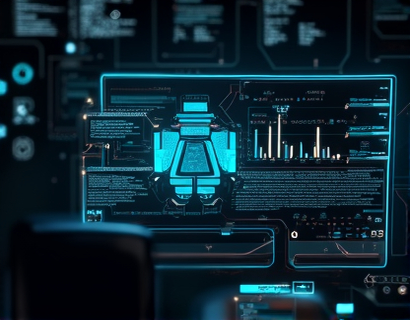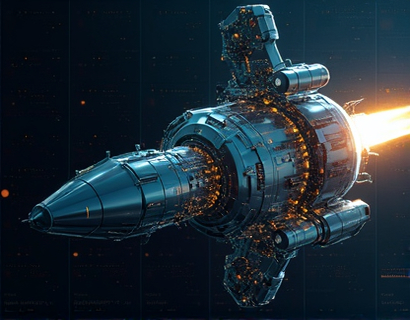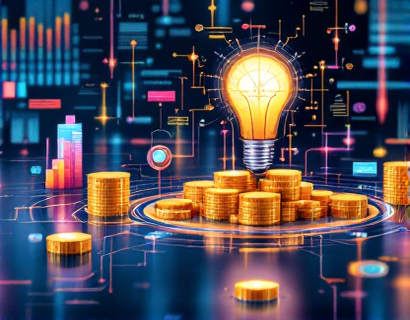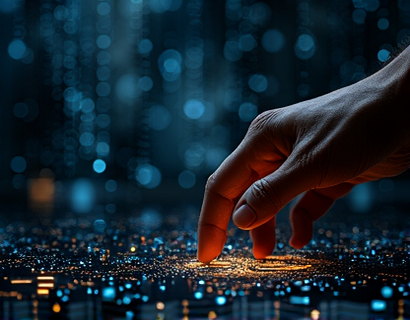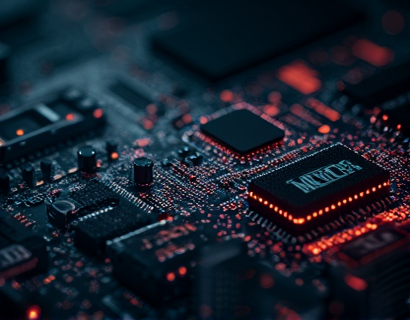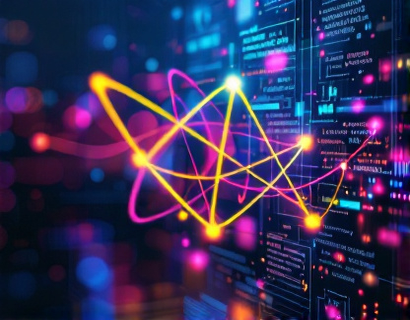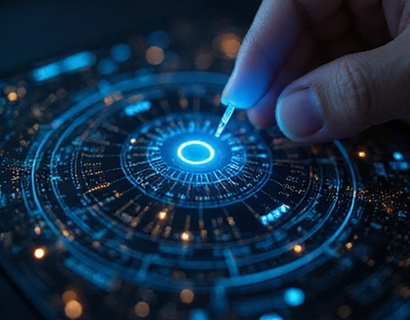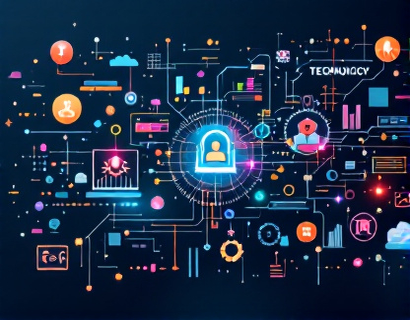Decentralized Transformation: Harnessing AI and Crypto for Advanced Digital Solutions
The digital landscape is undergoing a profound transformation, driven by the convergent powers of artificial intelligence (AI) and cryptocurrency. This synergy is giving rise to decentralized applications and services that not only enhance user experience but also drive unprecedented levels of engagement. As tech-savvy innovators and early adopters increasingly turn their attention to the intersection of AI and crypto, it becomes crucial to explore the intricate dynamics and potential of this emerging field. This article delves into the transformative impact of decentralized technologies, highlighting how AI and cryptocurrency are reshaping the future of digital solutions.
The concept of decentralization has been a cornerstone of the internet since its inception, but the integration of AI and cryptocurrency has elevated it to new heights. Decentralized applications, or dApps, operate on blockchain networks, eliminating the need for intermediaries and central authorities. This not only enhances security and transparency but also empowers users by giving them full control over their data and transactions. The combination of AI and decentralization amplifies these benefits, creating a robust ecosystem that is both resilient and intelligent.
Understanding Decentralized Applications
Decentralized applications are built on blockchain technology, which ensures that all transactions and data are recorded on a distributed ledger. This ledger is maintained by a network of nodes, making it nearly impossible to alter or manipulate. The decentralized nature of these applications means that they are not controlled by any single entity, reducing the risk of censorship and increasing reliability. AI, with its ability to process vast amounts of data and learn from patterns, enhances the functionality and efficiency of dApps.
One of the key features of dApps is their smart contract capability. Smart contracts are self-executing contracts with the terms of the agreement directly written into code. They automatically enforce and execute the terms when predefined conditions are met, eliminating the need for intermediaries. When combined with AI, smart contracts can adapt and optimize their operations based on real-time data, making them more dynamic and responsive to user needs.
AI in Decentralized Ecosystems
AI plays a pivotal role in decentralized ecosystems by providing intelligent solutions that enhance user experience and operational efficiency. Machine learning algorithms can analyze data from various sources, identify trends, and make predictions, which can be invaluable for dApps. For instance, in decentralized finance (DeFi), AI can optimize trading strategies, manage risks, and provide personalized financial advice to users. This level of intelligence is crucial in a space where speed and accuracy are paramount.
Moreover, AI-driven analytics can help decentralized platforms improve their services continuously. By analyzing user behavior and feedback, AI can identify areas for improvement and suggest enhancements. This data-driven approach ensures that dApps remain relevant and user-friendly, fostering greater adoption and engagement. The integration of AI also enhances security by detecting and mitigating potential threats in real-time, protecting user assets and data.
Use Cases of AI and Crypto in Decentralized Applications
The synergy between AI and cryptocurrency has given birth to a variety of innovative use cases across different sectors. One prominent area is decentralized gaming, where AI enhances the gaming experience by creating more realistic and adaptive game environments. NFTs (non-fungible tokens) powered by AI can generate unique in-game assets that evolve based on player interactions, adding a layer of depth and value to the gaming experience.
In the realm of decentralized identity management, AI and crypto combine to create secure and user-controlled identity solutions. Blockchain-based identity systems use AI to verify and manage digital identities, ensuring that personal data is protected and users have full sovereignty over their information. This is particularly important in an era where data breaches and identity theft are increasingly common.
Another significant application is in decentralized healthcare, where AI-driven analytics can process medical data from various sources to provide personalized treatment recommendations. Smart contracts can ensure that patient data is shared securely and compliantly, while AI can optimize the distribution of medical resources and predict disease outbreaks, enhancing public health initiatives.
Challenges and Considerations
Despite the immense potential, the integration of AI and cryptocurrency in decentralized applications is not without challenges. One of the primary concerns is scalability. Blockchain networks, especially those using proof-of-work consensus mechanisms, can struggle with high transaction volumes, leading to slow processing times and high fees. Layer 2 solutions and alternative consensus mechanisms, such as proof-of-stake, are being explored to address these issues.
Another challenge is the regulatory landscape. The decentralized nature of these technologies often conflicts with traditional regulatory frameworks, leading to uncertainty and potential legal hurdles. As the industry evolves, it is crucial for policymakers to create clear and supportive regulations that foster innovation while protecting consumers.
Interoperability is also a significant consideration. For decentralized applications to reach their full potential, different blockchain platforms need to communicate and work together seamlessly. Efforts to develop cross-chain solutions and standards are ongoing, but more work is needed to ensure a cohesive and integrated ecosystem.
Future Prospects
The future of decentralized applications enhanced by AI and cryptocurrency looks promising. As technology advances, we can expect more sophisticated and user-friendly dApps that seamlessly integrate AI-driven features. The rise of Web 3.0, a decentralized internet powered by blockchain, AI, and other emerging technologies, will further transform the digital landscape. In this new era, users will have greater control over their data and online experiences, with AI ensuring that these experiences are personalized and efficient.
The convergence of AI and crypto will also drive innovation in various industries, from finance and healthcare to supply chain and beyond. The ability to create transparent, secure, and intelligent systems will open up new possibilities for collaboration and growth. As more developers and businesses recognize the potential of decentralized technologies, the ecosystem will continue to expand, attracting a broader audience and fostering a more inclusive digital world.
In conclusion, the synergy between AI and cryptocurrency is revolutionizing the digital landscape by giving rise to decentralized applications that enhance user experience and drive engagement. While challenges remain, the potential benefits are vast, and the future looks bright for those who embrace this transformative technology. By staying informed and adaptable, we can harness the power of decentralization, AI, and crypto to build a more resilient and intelligent digital world.













